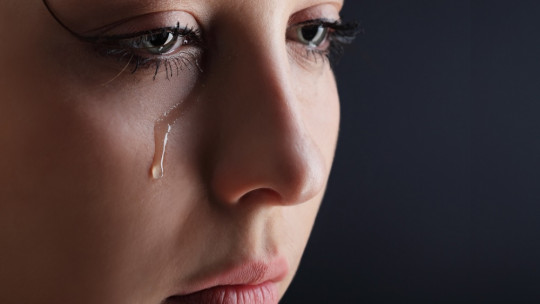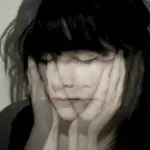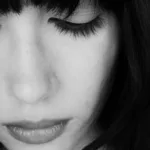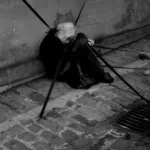Psychological disorders or illnesses tend to modify or alter the way in which people perceive themselves and their environment. Sometimes, this distortion can become so serious that a condition such as depression ends up presenting symptoms typical of a psychosis.
This is what happens with psychotic depression a rare subtype of depression that we will talk about throughout this article and that can appear in people who have already been affected by several episodes of major depression.
What is psychotic depression?
Psychotic depression, also known as depressive psychosis, is a subtype of depression that occurs when severe depression includes some form of psychosis within its symptom picture (that is, mental alterations that generate a very distorted perception or interpretation of reality). According to various investigations that have been able to provide statistics on the characteristics of this pathology, this type of depression usually affects approximately one in four people who are admitted to a hospital with a diagnosis of depression.
Thus, one of the characteristics of psychotic depression is that in addition to generating a very low mood in the person, presents alterations that not only quantitatively damage the emotional well-being of the subject, making them feel very bad ; Furthermore, it qualitatively damages your mental health by very profoundly affecting your way of interpreting things and, therefore, the expression of your personality.
And although technically mood disorders (such as depression or dysthymia) are part of a group of psychopathologies differentiated from psychotic disorders, it is relatively common for psychotic symptoms to “infiltrate” both the former and many others. other forms of psychological disorders, such as OCD. And, as we will see, this influences the way these people should be treated when seeking professional help in both medicine and psychotherapy.
Is psychotic depression a subtype of major depression?
Although psychotic depression does not currently form a diagnostic qualification in itself in the sense that major depressive disorder or bipolar disorder does, It can be considered a subtype of major depressive episode, and can also appear in the context of bipolar disorder Currently, research continues on whether it should be understood as a psychopathology separate from depression or should remain as a subtype of it, although in any case it presents qualitatively different characteristics to the experiences usually experienced by depressed people without psychotic symptoms. Furthermore, although diagnostic manuals do clearly distinguish between major depression and bipolar disorder, in practice there is still a gray scale between both phenomena and they overlap in many aspects, so that it is difficult to determine that psychotic depression is a subtype of the first and not the second.
In any case, for psychotic depression in the context of bipolar disorder to be considered as such, psychotic symptoms must appear during depressive episodes, and not manic episodes, which is important because delusions are relatively common in the latter. associated with the feeling of grandeur, the exaltation of good humor, and euphoria. In fact, a bipolar disorder with psychotic symptoms in the form of delusions at times of mania could be said to be the “classic” or conventional form of bipolarity, and does not need to be described with a more detailed specifier. Besides, It is much more common for psychotic alterations of bipolarity to appear during mania than during the depressive phase
The diagnostic criteria of the Diagnostic and Statistical Manual of Mental Disorders (DSM-IV) indicate that, for the correct diagnosis of psychotic depression, the patient must meet the requirements for a major depressive episode, along with the criteria for the specifier of “ psychotic characteristics. On the other hand, in the manual published later, the DSM-5, this alteration remains described in a similar way, although in this case emphasis is placed on the fact that Among people with major depression it occurs mainly in those who suffer recurrent depressive episodes with quite a few relapses.
Additionally, due to their similarities, psychotic depression is very commonly confused with schizoaffective disorder. However, this diagnosis requires the presence of purely psychotic symptoms for at least two weeks. That is, without depressive or mood symptoms.
What effects does this psychiatric disorder have on mental health?
Although research carried out over the years has described specific symptoms of psychotic depression (which we will see later), let’s now focus on the general way in which it affects people’s daily lives and quality of life. who suffer from it.
Psychosis in depression can manifest itself through hallucinations of any kind, such as voices that tell the person that they have no value; delusions in the form of intense feelings of worthlessness and failure, or directly causing the patient to completely break with reality through a combination of delusions, hallucinations and anhedonia, so that they rarely react to the real and significant events that occur around them.
On the other hand, In most cases, psychotic symptoms are consistent with the person’s mood ; For example, if she believes that she is being persecuted by members of a conspiracy, she will experience fear and/or anger, rather than joy. However, in more severe cases, psychotic depression causes the person to express emotions that are not congruent with the content of their hallucinations or delusions.
As we can see, although these are symptoms typical of a psychotic illness, their content is strongly related to some of the features of depression, What can low self-esteem be like?
How is it different from other psychoses?
Traditionally, it is understood that a person suffering from some type of psychosis is a person who is out of touch with reality. These patients may hear voices or present strange and illogical ideas among many other symptoms.
When these symptoms are part of a diagnosis of psychotic depression, they usually involve behaviors such as outbursts of anger and anger for no apparent reason, sleeping during the day to stay awake all night, neglecting their body image and hygiene, and even, difficulties communicating with other people
On the other hand, people who suffer from other types of mental illnesses, such as schizophrenia, also experience psychotic symptoms. However, in psychotic depression delusions or hallucinations are consistent with symptoms of depression. While the content of the psychotic symptoms of schizophrenia is often strange and implausible and without any apparent relationship to a mood.
Furthermore, in psychotic depression patients often feel ashamed of their thoughts, so they try to hide them. Hence, this type of depression is a little difficult to diagnose. Nevertheless, an accurate diagnosis is very important since, in addition to influencing treatment, episodes of psychotic depression are a risk factor in the development of bipolar disorder with recurrent episodes of psychotic depression, mania and even suicide.
What symptoms does psychotic depression present?
People with psychotic depression experience symptoms of a major depressive episode, including: feelings of hopelessness, worthlessness or guilt, constant fatigue, social withdrawal and agitation and irritability; accompanied by one or more psychotic symptoms, among which delusions and hallucinations stand out. Likewise, the patient may also present any of the following symptoms:
What are the causes?
Although, at the moment, it has not been determined what exact factors cause the development of psychotic depression, it has been observed that psychotic symptoms tend to develop after the person has gone through several episodes of depression without psychosis. Likewise, once these psychotic symptoms appear, tend to reappear with each future depressive episode
It has also been observed that families in which one of its members has experienced psychotic depression have a higher risk of both psychotic depression and schizophrenia. This points to a possible genetic component of this disease.
A large number of patients with psychotic depression report experiencing an initial episode of depression between the ages of 20 and 40. In the same way as other types of depression, psychotic depression is also usually episodic, with symptoms that appear over a certain period of time and decrease over time. Besides, These people tend to function well both socially and professionally between depressive episodes
Finally, although psychotic depression can be considered chronic when it lasts more than two years, the majority of depressive episodes last less than 24 months.
What is the treatment and prognosis?
Treatment for psychotic depression is usually carried out in a hospital setting, so the patient can be monitored to ensure maximum safety.

It is usually done a pharmacological treatment accompanied by psychological therapies that facilitate the integration of the patient into their environment. In pharmacological treatment, combinations of antidepressants and antipsychotic medications are often used.
While antidepressants promote mood stabilization, antipsychotics allow the brain to be able to perceive and organize information from the environment that surrounds the person.
Adequate treatment for psychotic depression can be really effective, to the point of allowing the patient to recover within a period of several months. However, due to the episodic nature of the disease, continuous medical monitoring is necessary
In more severe cases or those that do not respond to pharmacological treatment, the application of electroconvulsive therapy may be necessary.
Regarding the prognosis of this disease, it tends to be much more positive than other psychiatric diagnoses such as schizoaffective disorders. Still, people who experience a psychotic depressive episode are more likely to relapse and commit suicide Hence the need for tight monitoring.









